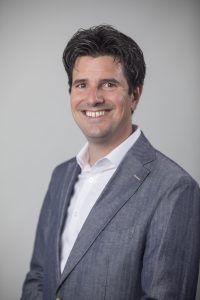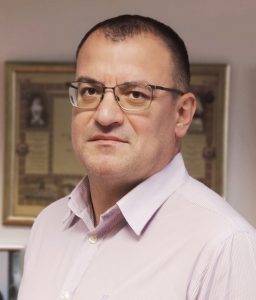Structure
How PGEU Operates
The PGEU has a Secretariat located in Brussels with a staff of five people who coordinates the daily work of the association. The PGEU holds a General Assembly two times per year (June and November) to which all members and observer members are invited to participate. PGEU holds an Annual Symposium which takes place immediately after or before the June General Assembly. The PGEU has a management board known as the Executive Committee whose members are representatives of PGEU member organisations.
The Presidency of the PGEU changes on an annual basis by the way of a rotation system among members. To facilitate the work of the PGEU in giving advice and formulating proposals in many different policy areas relevant to community pharmacy and public health, a number of PGEU Working Groups have been established.
General Assembly
The General Assembly is the supreme body of the association which decides on all important matters including PGEU policy decisions and the annual budget. The General Assembly meets two times per year and all ordinary members and observer members delegations attend. Policy proposals are developed by the Working Groups in collaboration with the Secretariat, and the Executive Committee presents policy proposals to the General Assembly with its recommendations for action.
PGEU Annual Conference
PGEU holds an annual conference every year the day before/after the June General Assembly. The annual conference features expert speakers from the world of pharmacy, the European institutions, national authorities, academia and patient groups.
Executive Committee :
- Meets on a monthly basis.
- Assists the Secretary General in managing the association and implementing the resolutions of the General Assembly.
- Examines policy proposals developed by the WorkingGroups in collaboration with the Secretariat and presents the proposals and the Committee's recommendations for action to the General Assembly.
- The chair of the Executive Committee is the President.
The Executive Committee consists of 9 members. ExCo Members in 2024 : Bulgaria - Hungary - Ireland - Latvia - GD of Luxembourg - Greece - Netherlands - Romania - Spain.
Presidency
The President is elected by the national delegations.
President : Aris Prins (Netherlands) is PGEU President for 2024.

Aris Prins was elected KNMP Chairman in December 2019 for an initial term of three years. He has been re-elected KNMP Chairman in December 2022 for a second term of three years.
Prior to his current position, Aris worked as a community pharmacist and served in leadership positions such as board member of the KNMP Community Pharmacy Section, mentor at Leiden University master's programme in Pharmacy, and pharmacist ambassador for the Vaccination Alliance initiated by the Dutch government. Aris worked as a hospital pharmacist in Ninewells Hospital in Dundee, Scotland and got his pharmacy MSc from Utrecht University.
Vice President : Dr Dimitar Marinov (Bulgaria) is PGEU Vice-President for 2024.

Dr Dimitar Marinov graduated Pharmacy in January 2004 and immediately started working as a hired pharmacist in a community pharmacy. Two years, Dimitar started his own pharmacy, which he had been owner and manager for almost 9 years. Dimitar has two more specialties - Organization and Economics of Distribution and Pharmacy Practice and Hospital Pharmacy and a PhD on theme Medico-social and economic aspects of medical abortion in Bulgaria. For the past three years, Dimitar has worked as the Secretary General of the Bulgarian Pharmaceutical Union (elective position), and has recently been elected for the President of the Bulgarian Pharmaceutical Union, which is the professional organization of pharmacists in Bulgaria.
Since 2009, Dimitar has been a representative of the trade union in various working groups - on changes in the regulations concerning pharmacies. He has a key role participating in the negotiations with the National Health Insurance Fund, which concerns the way all pharmacies in Bulgaria work with public funds.
Treasurer
Ms Marianne Meyers, from the Union of Luxembourg Pharmacists, is the PGEU treasurer.
Working Groups
The PGEU has to give advice and formulate proposals in many different policy areas relevant to community pharmacy and public health. To facilitate this work, the Executive Committee or the General Assembly can propose the establishment of a working group to deal with specific issues. The working group members are experts appointed by PGEU members. The working groups provide additional technical expertise to the Secretariat in developing policy proposals, which are then presented by the Executive Committee to the General Assembly for approval. The following working groups are currently active:
- Advisory Working Group (AWG) : The AWG is the main consultative body of the PGEU, covering a wide range of policy areas and is currently the key forum for discussion and development of PGEU policy papers.
- European Pharmacists' Professional Forum (EPPF) : The European Pharmacists' Professional Forum deals with professional issues, including issues related to mobility of pharmacists, mutual recognition of professional qualifications, education and training of pharmacists, patient safety, pharmacy practice, collaboration with other stakeholders, etc.
- Economics Working Group (EWG): The EWG deals with current economic issues and with latest developments in health policy and health economics affecting community pharmacies. These include trends related to fiscal sustainability of health systems, strengthening of primary care services, pricing and reimbursement policies, health technology assessment, digitalization in healthcare.
About Us